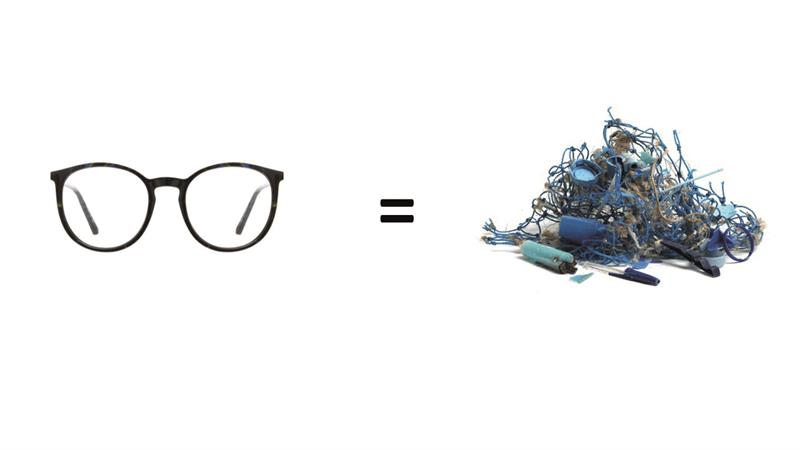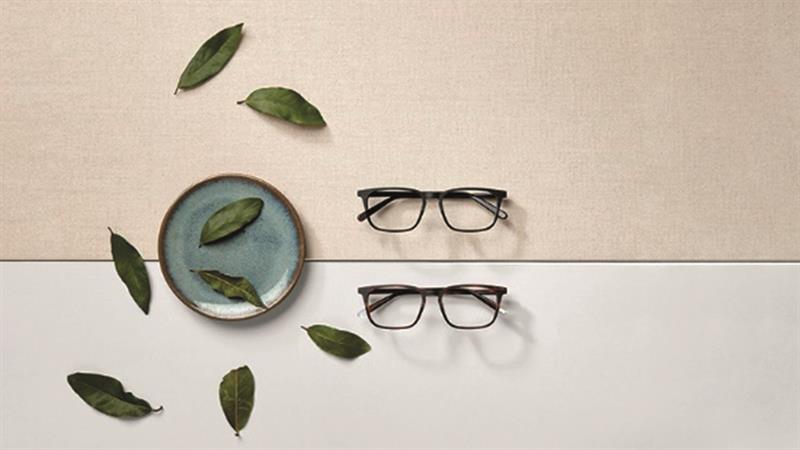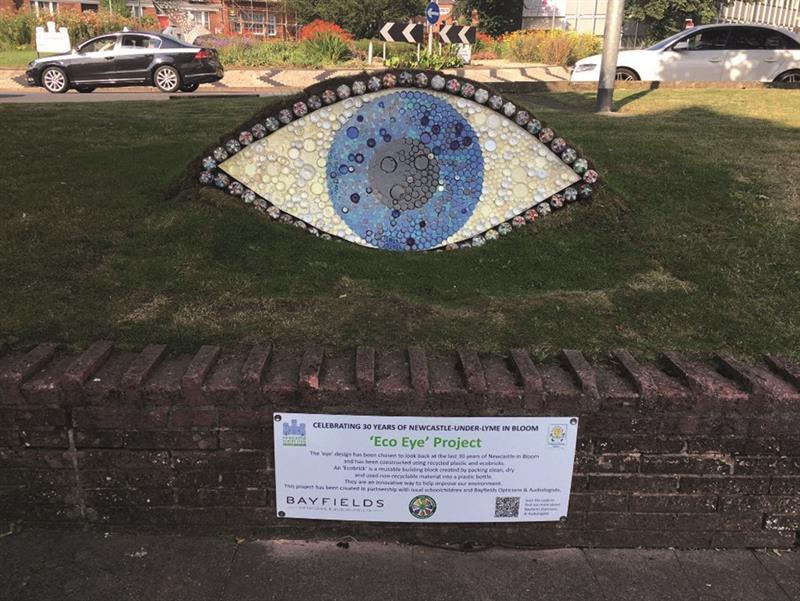
The first of these articles looking at sustainability issues in modern eye care practice focused on cost savings to be made through reducing waste (Optician 11.06.21). In this second article, I will focus more on individual ways we can adapt our way of practise to reduce our own impact upon the environment.
The Challenge is a Personal One
I will begin by relating the following story from practice.
Mrs P had visited the practice a couple of weeks previously for an eye examination and needed new frames and lenses. She had, however, been unable to choose from a shortlist of about 10 frames.
At the follow-up dispensing appointment, I was prepared for a long discussion about the merits of each frame; ‘features and benefits,’ in sales parlance. I began something like this: ‘This frame suits the shape of your face, while this frame has spring-loaded joints so it will be very durable. This one is made from titanium, so it is very light to wear…’ and continued along this vein.
I was struggling to find any single, compelling reason for her to invest in any particular frame and, by now, we had now been talking for about 20 minutes. I then picked up a Verona frame (by Sea2See) and mentioned that it was hand-made and manufactured using 100% recycled marine waste plastics. At this, I got an immediate and positive reaction from Mrs P. ‘So, this is helping remove plastic from the ocean? I’m really big on sustainability and, as a vegan, this one feels right for me.’ And she really liked the glasses case made from eco-friendly ‘cork’ material. Order placed.
 Each purchase of a Sea2See frame equals 1kg of marine plastic collected and recycled
Each purchase of a Sea2See frame equals 1kg of marine plastic collected and recycled
The reason I tell you this is that it was a Damascene moment for me. Mrs P could have chosen from any of the frames I showed her, but sustainability mattered more to her than the more typical optical considerations I offered. The Verona frame is well designed and manufactured in Italy, as are many frames we stock. But it has a USP (unique sales proposition), a feel-good factor that will appeal to certain patient types, typically the younger. This made me reconsider my role in the ‘supply chain’ of plastic.
Of course, reducing waste coupled with recycling of materials helps to cut CO2 emissions and reduces global warming. This presents an ongoing challenge, but making small incremental changes is the way forward. Small battles, big war. As individuals, we can each do our bit, but we need the whole profession and the wider optical industry to unite in the common cause.
In just the short period of time since my first article, the global picture has changed. July 2021 was the hottest month ever recorded according to National Oceanic and Atmosphere Administration (NOAA). The combined land and ocean surface temperature was 0.93˚C above the 15.8˚C average for the whole 20th century and is now the highest since records began, some 142 years ago. Experts at NOAA believe this is due to the long-term effects of climate change.
What can I do?
We all need to think again about the products we supply, the impact of our business at a local level, and to find out about new initiatives we might wish to join or support. Let us consider these in turn by way of some examples.
Products
There are an increasing number of suppliers who can help your practice to improve its eco-credentials.
Sea2see design and produce optical frames and sunglasses in Italy, entirely made with recycled marine plastic collected by fishermen in Spain, France and West Africa. Sea2See Founder and CEO, Francois van den Abeele, says; ‘We redesign a supply chain where waste has value in order to create a sustainable and scalable solution that reduces marine plastic and improve the lives of marginalised coastal communities living in biodiversity hotspots of developing countries.’
Coral Eyewear, who produce frames from recycled plastic rescued from oceans and landfill, and Wolf Eyewear, the family-run British brand, have announced an agreement that will see Wolf distribute the sustainable Endangered Collection throughout the UK. The new agreement will see Wolf distributing Coral Eyewear’s recycled frames, which are created out of fishing nets from the aquaculture sector and some rescued from oceans along with other post-consumer waste material such as fabric scraps and carpets. Additionally, the two businesses will hold regular sustainability days where the management teams will meet to discuss methods to reduce the environmental impact within the eyewear industry.
Eyespace has introduced the Eco Conscious range of frames, with a new certification classifying the acetate used as being fully biodegradable in order to meet BS EN ISO 14855-1:2012. For an item to be classified as biodegradable, the material must biodegrade to carbon dioxide, water, mineral salts and new microbial cellular constituents (classed as biomass). Throughout the fully audited manufacturing process, factory water is never wasted and is, instead, recycled and redistributed.
 The Eco Conscious range
The Eco Conscious range
This premium collection of frames is further supported by plastic-free packaging, biodegradable demo lenses and metal components made with recycled content. Furthermore, Eyespace, in collaboration with non-profit organisation One Tree Planted, has committed to planting a tree for every one of their Eco Conscious frames purchased.
Another innovative approach to sustainability, which also drives customer loyalty, comes from Glaskar. They supply a funky optic dispenser (as in a bar, and not a DO), for lens cleaners (figure 5). Customers choose their own re-useable bottle, which they can refill themselves on visits to the practice, at no charge. This maintains customer contact, thus creating additional sales opportunities. Refill, not landfill.
In The Community
At the practice where I work in Newcastle-under-Lyme, we had an opportunity to support a community action aimed at encouraging recycling. The Eco-Eye project was a partnership initiative between local schoolchildren and Bayfields Opticians. Using non-recyclable plastics and ‘eco bricks,’ which are reusable building blocks made from non-recyclable materials, we produced the display shown below. This gained the practice some welcome local media coverage at the time.

Be Aware
The Inter-governmental Panel on Climate Change (IPCC) is a group of scientists whose findings are endorsed by the world’s governments. Their recent report is described as ‘a red code for humanity’. But the scientists say a catastrophe can be avoided if the world acts fast. The UN Secretary General is counting on government leaders and all stakeholders to ensure COP26 (the key global summit being held in Glasgow in November) is a success. We must all do what we can to help this be so.
- Tony Harvey is a dispensing optician and a lead on the ABDO National Clinical Committee working group on Social Ethical and Environmental issues (SEE ) seeking to promote environmental sustainability in the UK optical sector.
